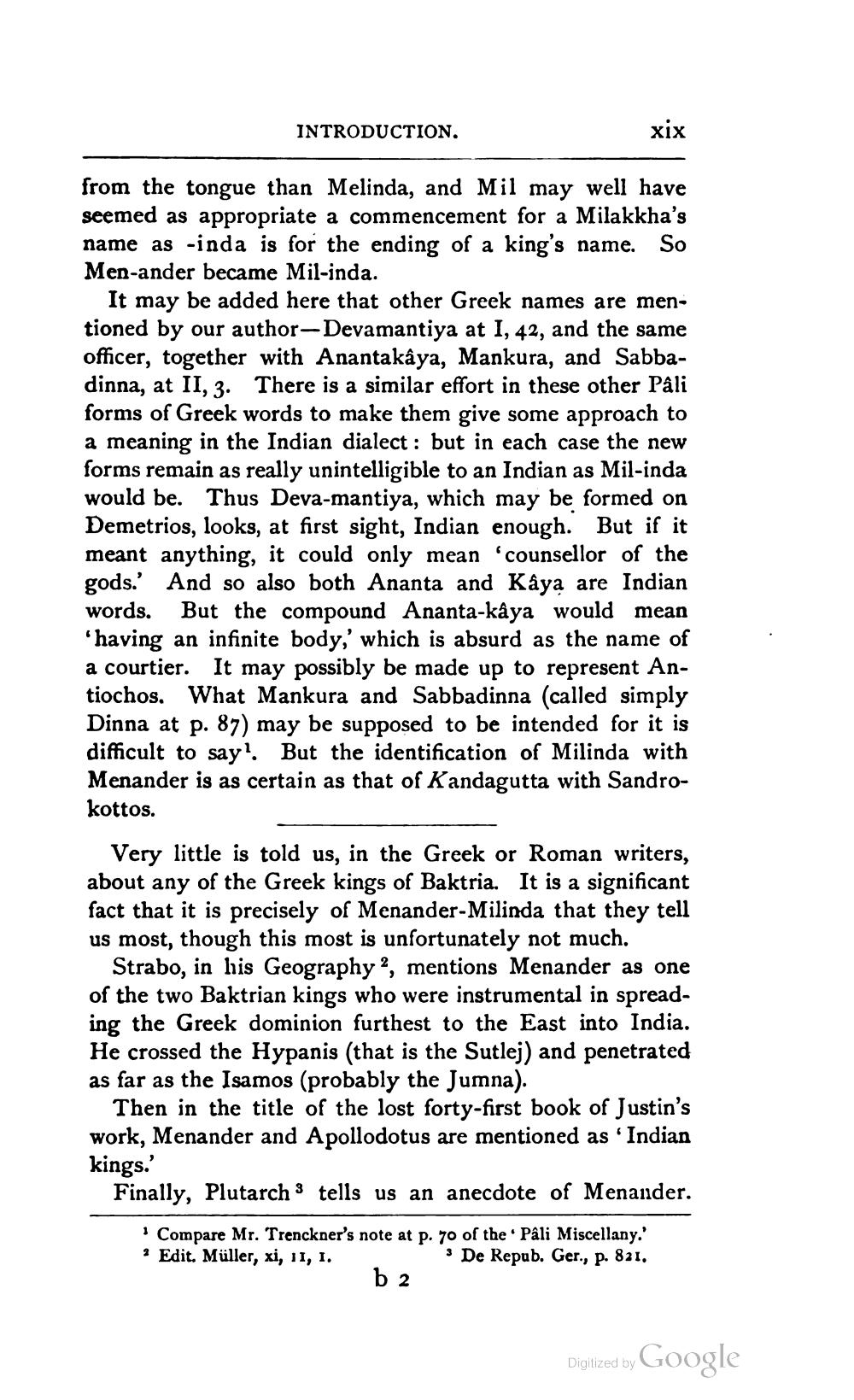________________
INTRODUCTION.
xix
from the tongue than Melinda, and Mil may well have seemed as appropriate a commencement for a Milakkha's name as -inda is for the ending of a king's name. So Men-ander became Mil-inda.
It may be added here that other Greek names are mentioned by our author-Devamantiya at I, 42, and the same officer, together with Anantakâya, Mankura, and Sabbadinna, at II, 3. There is a similar effort in these other Pâli forms of Greek words to make them give some approach to a meaning in the Indian dialect : but in each case the new forms remain as really unintelligible to an Indian as Mil-inda would be. Thus Deva-mantiya, which may be formed on Demetrios, looks, at first sight, Indian enough. But if it meant anything, it could only mean counsellor of the gods.' And so also both Ananta and Kaya are Indian words. But the compound Ananta-kaya would mean 'having an infinite body,' which is absurd as the name of a courtier. It may possibly be made up to represent Antiochos. What Mankura and Sabbadinna (called simply Dinna at p. 87) may be supposed to be intended for it is difficult to say? But the identification of Milinda with Menander is as certain as that of Kandagutta with Sandrokottos.
Very little is told us, in the Greek or Roman writers, about any of the Greek kings of Baktria. It is a significant fact that it is precisely of Menander-Milinda that they tell us most, though this most is unfortunately not much.
Strabo, in his Geography?, mentions Menander as one of the two Baktrian kings who were instrumental in spreading the Greek dominion furthest to the East into India. He crossed the Hypanis (that is the Sutlej) and penetrated as far as the Isamos (probably the Jumna).
Then in the title of the lost forty-first book of Justin's work, Menander and Apollodotus are mentioned as 'Indian kings.'
Finally, Plutarch 3 tells us an anecdote of Menander.
· Compare Mr. Trenckner's note at p. 70 of the . Páli Miscellany." · Edit. Müller, xi, 11, 1.
De Repub. Ger., p. 821. b 2
Diglized by Google




